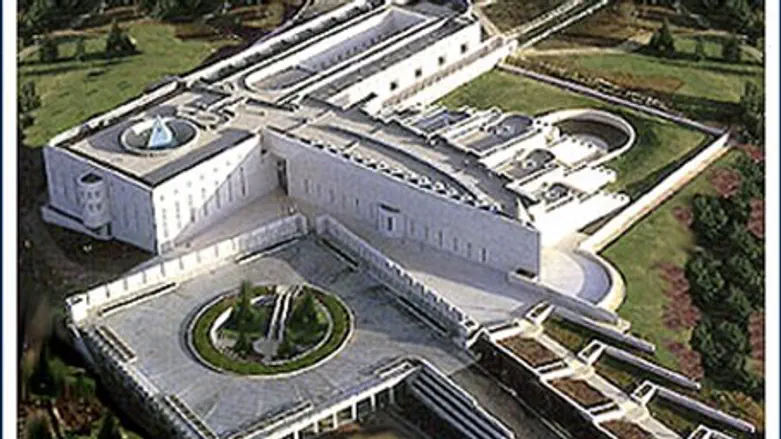
Israeli Jews trust the IDF to a very large extent, according to a poll by the Israeli Democracy Institute. According to the annual poll, 90.9 of Israelis trust the IDF to act in the interests of Israel, ensuring the country's security and safety.
The institution of the Presidency rated well among Israeli Jews, with 78.7% saying they trusted it to fulfill its mission and unify the country.
Not faring as well are some of the other major institutions in the country. Only 60.8% trust the High Court to act in the country's best interests, a sharp drop from the 2012 figure, which was 73.4%. The poll was taken during the period that the High Court ordered the government to release hundreds of illegal aliens who were being held in a work camp in southern Israel, pending their possible deportation from Israel.
With that, the 2013 figure was still significantly higher than the low point of 2008-2010, in which only half of Israeli Jews said they trusted the court.
Also faring poorly as trusted institutions among Israeli Jews was the government (with a trust level of 57.9%), the Knesset (54.5%), the Prime Minister (51.7%), the media (47.2%), the Chief Rabbinate (43%), and the political parties (36.7%). Those numbers were not much changed from the previous several polls, the Institute said. The Israel Police fared a bit better, with 61.9% saying they trusted police to act fairly and within the law.
Among Israeli Arabs, trust in the state's institutions was far lower. The High Court rated highest among them, but only 49.7% said they believed they could get a fair shake there. The rest of the country's institutions were less trusted by Israeli Arabs, with the media coming in second (trusted by 48.1%), followed by the police (43.5%), political parties (43.2%), the President's Office (41.7%), the Knesset (38.5%), the IDF (34.9%), and the government (33.3%). Coming in lowest in terms of trust for Israeli Arabs is the Prime Minister (31%).
The poll included 1,000 respondents – 852 Jewish and 148 Arabs – and has an error margin of 3.2%, the Institute said.